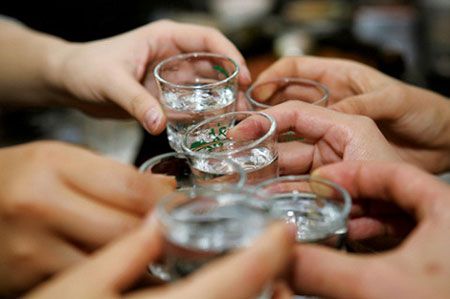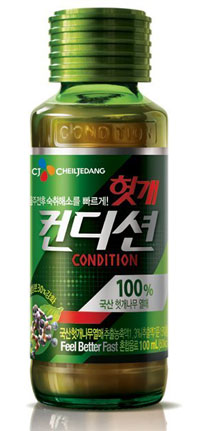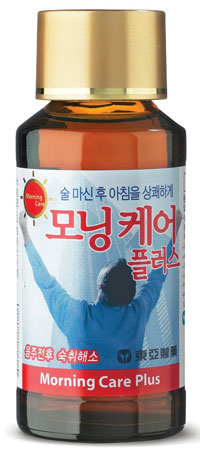
What’s best way to ease hangover?

Year-end binge drinking renews rivalry in ‘cure’ drink market

For many Korean company workers, December is a month of binge drinking. They stagger and sway through a variety of year-end parties day after day and in many cases are forced to drink beyond their limits.
The year-end binging has drastically increased not only alcohol consumption but also spending on drinks designed to cure hangovers. Many people resort to such products to soothe their pains after a night of drinking.
The sales hike between November and December has touched off fierce competition among manufacturers in a bid to grab a bigger slice of the market. They try to capture customer attention by using a variety of marketing tools and releasing upgraded products that claim to hasten hangover recovery.
Koreans’ excessive alcohol consumption is documented in a 2012 report from the World Health Organization that says people here aged over 15 consume an average of 12.1 liters of alcohol a year, making them the heaviest drinkers in the Asia-Pacific region. Australians followed at 10.4 liters, then New Zealanders at 9.5 liters, Japanese with 7.5 liters and Chinese at 4.7 liters.

The nation’s first hangover “cure” drink hit the shelves in 1992, produced by giant food maker CJ. Its initial sales were poor because people were unfamiliar with the nature of the product.
But these beverages have grown into a sizable industry and their sales topped 230 billion won ($214 million) last year. Analysts predict it will continue to grow.
For domestic manufacturers of hangover cure drinks, the last two months of the year is crucial because nearly a quarter of annual sales are generated during that period.
In a Nielsen Korea survey from January to October, the three best-selling brands were Hutgae Condition from CJ Cheiljedang, Dawn 808 by Glami, and Dong-A Pharmaceutical’s Morning Care. They combined for 93 percent of the entire market. Among minor suppliers are Kwang Dong Pharmaceutical, Korea Yakult and Lotte Chilsung Beverage.
Hutgae Condition, the No.1 brand with a 50 percent market share, promotes itself for being blended with 15 percent raisin tree fruit extract concentration that is scientifically proven to be helpful for hangover recovery and a proprietary blend of lotus, glutathione and milk vetch root, according to its website.
Ahead of winter, CJ launched an upgraded Hutgae Condition blended with 30 percent raisin tree fruit extract along with other herbal remedy elements. The firm is trying to catch the attention of potential customers by featuring singer Psy in its TV commercial.
Dawn 808, the No. 2 brand with a 26 percent market share, is known as a natural herb tea that can help hangover recovery. The products’ recipe is patented in 11 countries, including the United States, Japan, China, Canada and several European countries. Its manufacturer is trying to boost sales this winter by hosting promotional events at venues normally used for year-end parties.
Morning Care is promoting itself by giving away tablet computers, restaurant tickets and gift vouchers to selected lucky customers. <The Korea Times/Park Si-soo>


